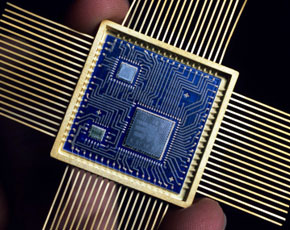Advanced Micro Devices (AMD) and ARM Holdings have joined forces to offer PC software developers additional security features.
US-based AMD is to license technology from UK-based ARM to add an ARM-based processor to its computer chips using a system-on-a-chip (SoC) design methodology that will be dedicated to providing security features.

The ARM-based processor will provide the firm's Trustzone technology, which allows only approved software to run, making it more difficult for hackers and malware to disrupt processes.
The partnership will make TrustZone available to a much broader group of developers, moving beyond tablets and smartphones that use ARM chip architecture to include the PC market.
AMD plans to incorporate an ARM Cortex-A5 CPU into its chips for "superthin" laptops from 2013, across chips for other mainstream computers in 2014, and beyond that into servers.
Read more about hardware-based security Intel demonstrates McAfee DeepSAFE security platform Texas teams up with ARM to tackle mobile phone chip security ARM adds hardware-based security to its cores
Potential security features include enhanced authentication systems for mobile banking, attack-resistant anti-virus software, and anti-piracy software.
Rival Intel has led the way in pursuing a hardware-based approach to security through the DeepSAFE technology developed with security firm McAfee, acquired for $7.68bn in 2010.
AMD said the new chip design would enable security code to run in an isolated environment. By reducing the environment and restricting the functions, a lot of the risk is reduced, the firm said.
"By adopting the industry-standard approach to security that TrustZone technology embodies, AMD and ARM will provide a consistent approach to security, spanning billions of internet-connected mobile devices, tablets, PCs and servers," the two companies said in a statement.
Image: Kim Steele/Photodisc/Thinkstock





